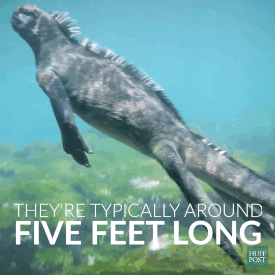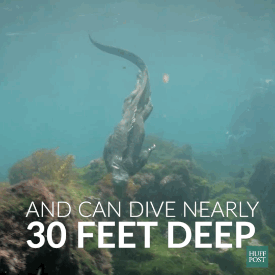Key To Learning And Forgetting Identified In Sleeping Brain
Key to Learning and Forgetting Identified in Sleeping Brain
Distinct patterns of electrical activity in the sleeping brain may influence whether we remember or forget what we learned the previous day, according to a new study by UC San Francisco researchers. The scientists were able to influence how well rats learned a new skill by tweaking these brainwaves while animals slept, suggesting potential future applications in boosting human memory or forgetting traumatic experiences, the researchers say.
In the new UCSF study, published online Oct. 3 in the journal Cell, a research team led by Karunesh Ganguly, MD, PhD, an associate professor of neurology and member of the UCSF Weill Institute for Neurosciences, used a technique called optogenetics to dampen specific types of brain activity in sleeping rats at will.
This allowed the researchers to determine that two distinct types of slow brain waves seen during sleep, called slow oscillations and delta waves, respectively strengthened or weakened the firing of specific brain cells involved in a newly learned skill – in this case how to operate a water spout that the rats could control with their brains via a neural implant.
“We were astonished to find that we could make learning better or worse by dampening these distinct types of brain waves during sleep,” Ganguly said. “In particular, delta waves are big part of sleep, but they have been less studied, and nobody had ascribed a role to them. We believe these two types of slow waves compete during sleep to determine whether new information is consolidated and stored, or else forgotten.”
“Linking a specific type of brain wave to forgetting is a new concept,” Ganguly added. “More studies have been done on strengthening of memories, fewer on forgetting, and they tend to be studied in isolation from one another. What our data indicate is that there is a constant competition between the two – it’s the balance between them that determines what we remember.”
Some Sleep to Remember, Others to Forget
Over the past two decades the centuries-old human hunch that sleep plays a role in the formation of memories has been increasingly supported by scientific studies. Animal studies show that the same neurons involved in forming the initial memory of a new task or experience are reactivated during sleep to consolidate these memory traces in the brain. Many scientists believe that forgetting is also an important function of sleep – perhaps as a way of uncluttering the mind by eliminating unimportant information.
Slow oscillations and delta waves are hallmarks of so-called non-REM sleep, which – in humans, at least – makes up half or more of a night’s sleep. There is evidence that these non-REM sleep stages play a role in consolidating various kinds of memory, including the learning of motor skills. In humans, researchers have found that time spent in the early stages of non-REM sleep is associated with better learning of a simple piano riff, for instance.
Ganguly’s team began studying the role of sleep in learning as part of their ongoing efforts to develop neural implants that would allow people with paralysis to more reliably control robotic limbs with their brain. In early experiments in laboratory animals, he had noted that the biggest improvements in the animals’ ability to operate these brain-computer interfaces occurred when they slept between training sessions.
“We realized that we needed to understand how learning and forgetting occur during sleep to understand how to truly integrate artificial systems into the brain,” Ganguly said.
Brain Waves Compete to Determine Learning During Sleep
In the new study, a dozen rats were implanted with electrodes that monitor firing among a small group of selected neurons in their brains’ motor cortex, which is involved in conceiving and executing voluntary movements. Producing a particular pattern of neural firing allowed the rats to control a water-dispensing tube in their cages. In essence, the rats were performing a kind of biofeedback – each rat learned how to fire a small ensemble of neurons together in a unique new pattern in order to move the spigot and get the water.
Ganguly’s team observed the same unique new firing pattern replaying in animals’ brains as they slept. The strength of this reactivation during sleep determined how well rats were able to control the water spout the next day. But the researchers wanted to go further – to understand how the brain controls whether rats learn or forget while they slumber.
To manipulate the effect of brain waves during non-REM sleep, the researchers genetically modified rat neurons to express a light-sensitive optogenetic control switch, allowing the team to use lasers and fiber optics to instantaneously dampen brain activity associated with the transmission of specific brain waves. With precise, millisecond timing of the laser, the scientists in separate experiments specifically dampened either slow oscillating waves or delta waves in a tiny patch of the brain around the new memory circuit.
Disruption of delta waves strengthened reactivation of the task-associated neural activity during sleep and was associated with better performance upon waking. Conversely, disruption of slow oscillations resulted in poor performance upon waking. “Slow oscillations seem to be protecting new patterns of neural firing after learning, while delta waves tend to erase them and promote forgetting,” Ganguly said.
Further analysis showed that in order to protect learning, slow oscillations had to occur at the same time as a third, well-studied brain wave phenomenon, called sleep spindles. A sleep spindle is a high-frequency, short-duration burst of activity that originates in a region called the thalamus and then propagates to other parts of the brain. They have been linked to memory consolidation, and a lack of normal sleep spindles is associated with brain maladies including schizophrenia and developmental delay, and also with aging.
“Our work shows that there is a strong drive to forget during sleep,” Ganguly said. “Very brief pairings of sleep spindles and slow oscillations can overcome delta wave-driven forgetting and preserve learning, but the balance is very delicate. Even small disturbances in these events lead to forgetting.”
It’s not yet known what tips the scales between delta wave–driven forgetting and slow oscillation–driven learning, but it’s clear that better understanding the process could have profound impacts on the study of human learning and memory, Ganguly said. “Sleep is truly driving profound changes in the brain. Understanding these changes will be critical for brain integration of artificial interfaces and may one day allow us to modify neural circuits to aid in movement rehabilitation, such as after stroke, where previous studies have shown that sleep plays an important role in successful recovery.”
More Posts from Gatortavern and Others
just adding that she has very similar, if not the same energy color as the Sphinx of Truth:

Will this mean anything? Probably not, but if Zack’s going the kinda-sleazy-conman-with-a-heart route (or perhaps just the tried and true lovable asshole route), then the interactions between Truth’s power and how Scabs could theoretically sidestep those truth powers activating on her while allowing them to be used on others to the fullest extent...that’d be a rather interesting interaction!

Scabs in this update here to uplifit my spirits, water my crops, and ruin my years-old headcanons about how she might act. Dropkicking my soul into writing that story I’ve had for a while about her. Digging the color of her spectral energy, and I wonder about her backstory.
Right now she’s kinda giving off Kuzco energy (maybe start-to-mid-movie Kuczo?). We’ll see how this progresses.
A relaxing timeframe
curled up in a nice little nook, listening to Seven Lions, alternating between a cool cup of water and a nice warm mug of Jasmine tea, writing a story. It is very calm. I should do this more often. I wish you calm as well.
I thought this was super cool! Also helpful reference for something to attempt later.










If there are any spelling mistakes, no there aren't. I just can't read or write.
The continuation of my clouds tutorial from last week.
show, don't tell:
anticipation - bouncing legs - darting eyes - breathing deeply - useless / mindless tasks - eyes on the clock - checking and re-checking
frustration - grumbling - heavy footsteps - hot flush - narrowed eyes - pointing fingers - pacing / stomping
sadness - eyes filling up with tears - blinking quickly - hiccuped breaths - face turned away - red / burning cheeks - short sentences with gulps
happiness - smiling / cheeks hurting - animated - chest hurts from laughing - rapid movements - eye contact - quick speaking
boredom - complaining - sighing - grumbling - pacing - leg bouncing - picking at nails
fear - quick heartbeat - shaking / clammy hands - pinching self - tuck away - closing eyes - clenched hands
disappointment - no eye contact - hard swallow - clenched hands - tears, occasionally - mhm-hmm
tiredness - spacing out - eyes closing - nodding head absently - long sighs - no eye contact - grim smile
confidence - prolonged eye contact - appreciates instead of apologizing - active listening - shoulders back - micro reactions
GIMP too works as a great substitute for Photoshop! Also super vouching for LibreOffice, Writer is fantastic and I don't see much of a difference between it and microsoft word at all.
It used to be that when a company released hacky, closed-source, propriety software, those facts alone would make them an object of ridicule amongst mean nerds on the Internet for years. Now we just kinda performatively bitch about Adobe every couple of months.
This isn't a gator or skeletons, it's just something that makes me happy when I see it. I live for dumb stuff like this.



“Oh, I didn’t know about that. That is good.”
Can you imagine floating down the river and seeing something like this? Majestic and potentially terrifying all at once!


Alligator eyes shining in the sunset, Myakka River State Park, Florida

Before the bottom of chapter 3 page 34 reveals that he saw Isaac use his weather powers, you can see him go from his earlier position staring at nothing in particular to focusing on Isaac! Zack's little details are such a nice touch.


Reminder: He was not unconscious. He was just laying there silently.
-
 pleasurehunter2000 liked this · 4 years ago
pleasurehunter2000 liked this · 4 years ago -
 jacksmithson reblogged this · 4 years ago
jacksmithson reblogged this · 4 years ago -
 strawberry-seal liked this · 4 years ago
strawberry-seal liked this · 4 years ago -
 health-mental-wellness reblogged this · 4 years ago
health-mental-wellness reblogged this · 4 years ago -
 detaras reblogged this · 4 years ago
detaras reblogged this · 4 years ago -
 broccoletto reblogged this · 4 years ago
broccoletto reblogged this · 4 years ago -
 broccoletto liked this · 4 years ago
broccoletto liked this · 4 years ago -
 harmonic-psyche reblogged this · 4 years ago
harmonic-psyche reblogged this · 4 years ago -
 freckledman reblogged this · 4 years ago
freckledman reblogged this · 4 years ago -
 freckledman liked this · 4 years ago
freckledman liked this · 4 years ago -
 xpandabeardontcarex reblogged this · 4 years ago
xpandabeardontcarex reblogged this · 4 years ago -
 sleepingbaby reblogged this · 4 years ago
sleepingbaby reblogged this · 4 years ago -
 ghostoftheturtlelord reblogged this · 4 years ago
ghostoftheturtlelord reblogged this · 4 years ago -
 claimingthefifth liked this · 4 years ago
claimingthefifth liked this · 4 years ago -
 ramizko liked this · 4 years ago
ramizko liked this · 4 years ago -
 learningcherryblossoms reblogged this · 4 years ago
learningcherryblossoms reblogged this · 4 years ago -
 apomictic liked this · 4 years ago
apomictic liked this · 4 years ago -
 acynicaloutlook reblogged this · 4 years ago
acynicaloutlook reblogged this · 4 years ago -
 slightlymorbidskeleton reblogged this · 4 years ago
slightlymorbidskeleton reblogged this · 4 years ago -
 thatiswhy liked this · 4 years ago
thatiswhy liked this · 4 years ago -
 harm-money liked this · 4 years ago
harm-money liked this · 4 years ago -
 ghostbong666 liked this · 4 years ago
ghostbong666 liked this · 4 years ago -
 kozirog reblogged this · 4 years ago
kozirog reblogged this · 4 years ago -
 where-the-lights-are-given liked this · 4 years ago
where-the-lights-are-given liked this · 4 years ago -
 heretic-maverick liked this · 4 years ago
heretic-maverick liked this · 4 years ago -
 scharfeschafe liked this · 4 years ago
scharfeschafe liked this · 4 years ago -
 fluidfae liked this · 4 years ago
fluidfae liked this · 4 years ago -
 redneckrhetorician liked this · 4 years ago
redneckrhetorician liked this · 4 years ago -
 ellimist liked this · 4 years ago
ellimist liked this · 4 years ago -
 bugcatholicism liked this · 4 years ago
bugcatholicism liked this · 4 years ago -
 lumberjerk reblogged this · 4 years ago
lumberjerk reblogged this · 4 years ago -
 may-or-may-not-be-me liked this · 4 years ago
may-or-may-not-be-me liked this · 4 years ago -
 reyneclaw liked this · 4 years ago
reyneclaw liked this · 4 years ago -
 sha19891368 liked this · 4 years ago
sha19891368 liked this · 4 years ago -
 cbenedict1123 liked this · 4 years ago
cbenedict1123 liked this · 4 years ago -
 thewoodrow reblogged this · 4 years ago
thewoodrow reblogged this · 4 years ago -
 enchantingxfittermed reblogged this · 4 years ago
enchantingxfittermed reblogged this · 4 years ago -
 loveandfuckurself liked this · 4 years ago
loveandfuckurself liked this · 4 years ago -
 mgh-studyblr reblogged this · 4 years ago
mgh-studyblr reblogged this · 4 years ago -
 studyudon reblogged this · 4 years ago
studyudon reblogged this · 4 years ago -
 leftfootism liked this · 4 years ago
leftfootism liked this · 4 years ago

A Cozy Cabana for Crocodiles, Alligators and their ancestors. -fan of the webcomic Paranatural, Pokemon, Hideo Kojima titles -updates/posts infrequently
237 posts








